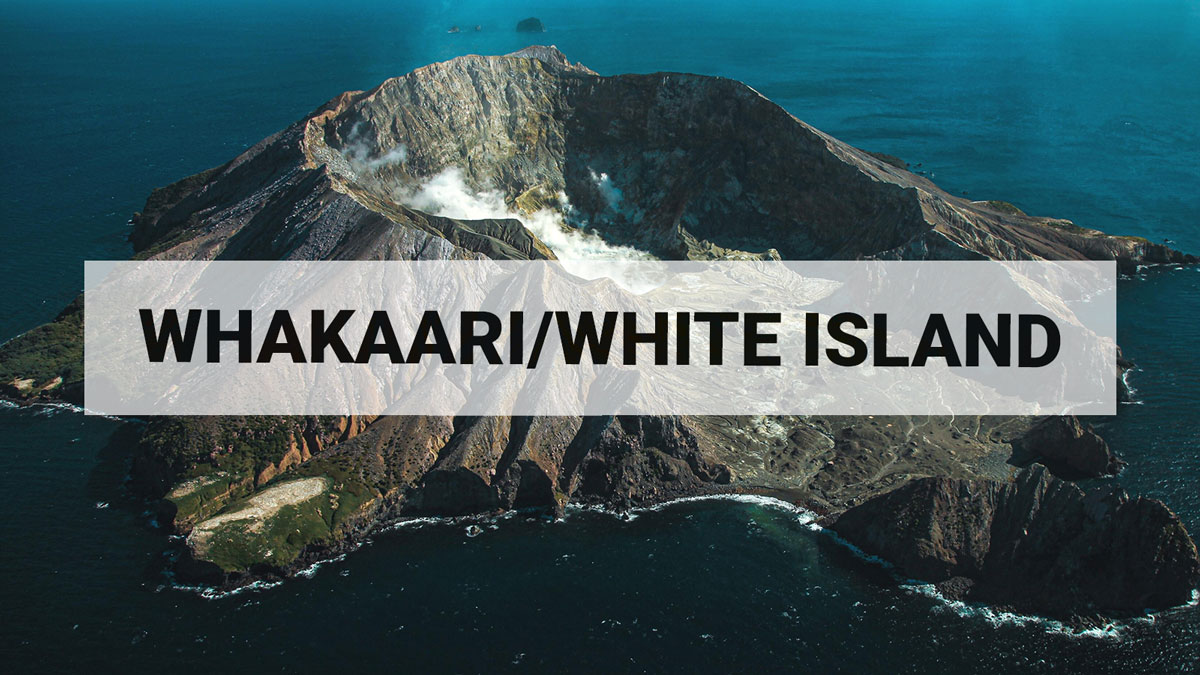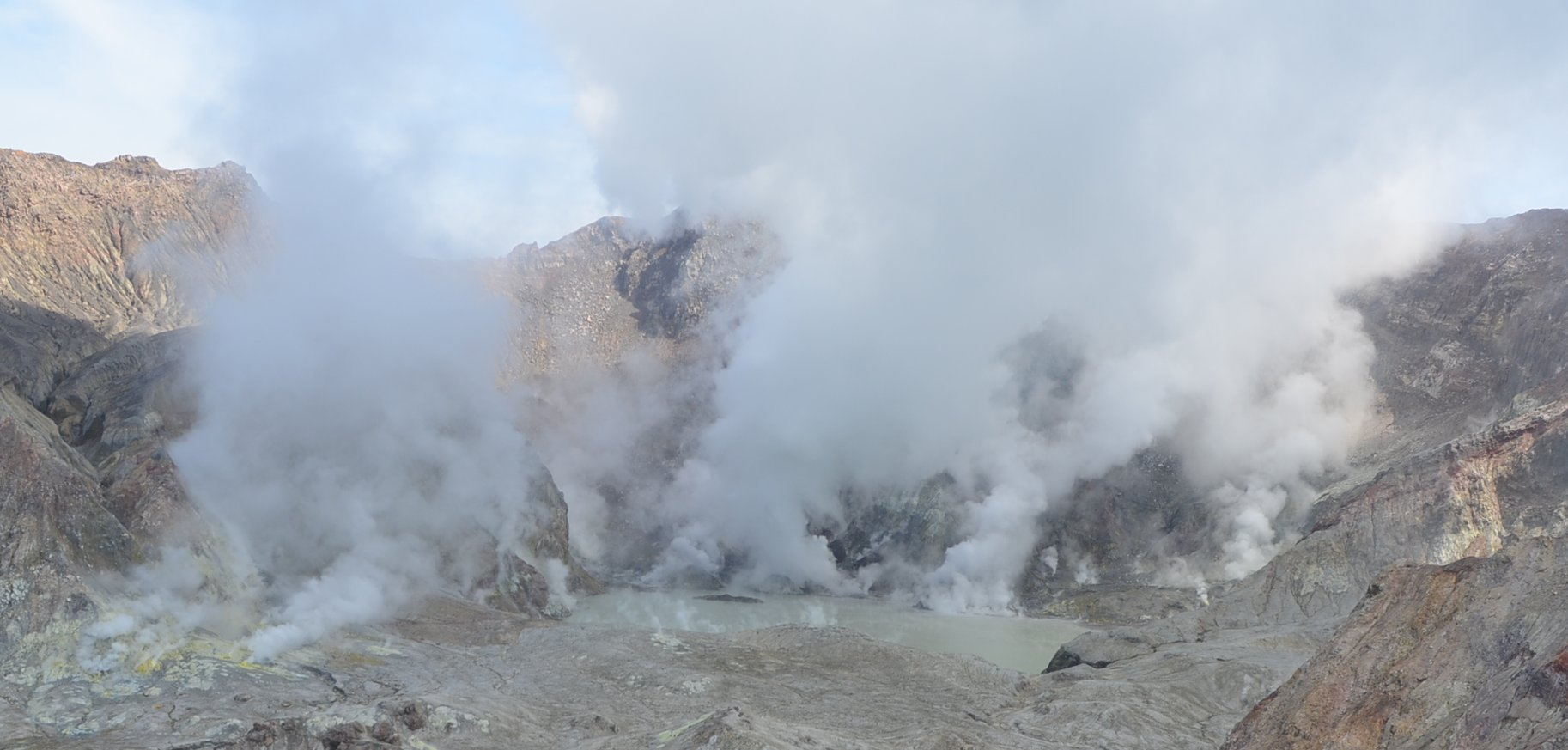
Whakaari/White Island continues to emit significant amounts of gas and steam. Volcanic Alert Level remains at Level 2.
Recent observation and gas flights confirm that active vents are continuing to emit a significant steam and gas plume. The Volcanic Alert Level remains at 2.
An observation flight on 2 March 2023 and a gas flight on 9 March 2023 showed that Whakaari continues to emit significant amounts of steam and gas at a temperature of around 240 C. To put this into context, we observed temperatures of more than 600 C in the past. During certain weather patterns the steam coming out the crater can generate large plumes that are clearly visible from the mainland as happened on 5 March 2023 (Figure 1). Gas fluxes have increased compared to the previous measurements but are within the usual range for Whakaari.
The substantial amounts of rain during the past month have raised the water levels in the crater lake and some of the smaller pools. As a result, some fumaroles are now under water leading to geysering and bubbling. No signs of volcanic ash in the plume or other eruptive activity were observed during the recent flights.
The VAL remains at Level 2 (moderate to heightened unrest) and the Aviation Colour Code remains at Yellow, acknowledging the current level of activity, but also continuing to acknowledge the greater level of uncertainty in our interpretation due to the current lack of consistent, useful real-time data.
As the weather allows, we will under-take additional gas and observation flights to the island until we can service our on-island equipment and power supplies. We still have intermittent access to webcams images from the island, providing some level of visual monitoring between our flights.
The Volcanic Alert Level reflects the current level of volcanic unrest or activity and is not a forecast of future activity. While Volcanic Alert Level 2 is mostly associated with volcanic unrest hazards (including discharge of steam and hot volcanic gases, earthquakes, landslides, and hydrothermal activity), potential for eruption hazards also exists and eruptions can still occur with little or no warning.
Further information about the Volcanic Alert Levels and what they mean can be found here.
GNS Science’s National Geohazards Monitoring Centre and Volcano Monitoring Group, through the GeoNet programme, continue to monitor Whakaari/White Island for further changes in unrest.
Yannik Behr
Duty Volcanologist
Media Contact: 021 574541 or media@gns.cri.nz




